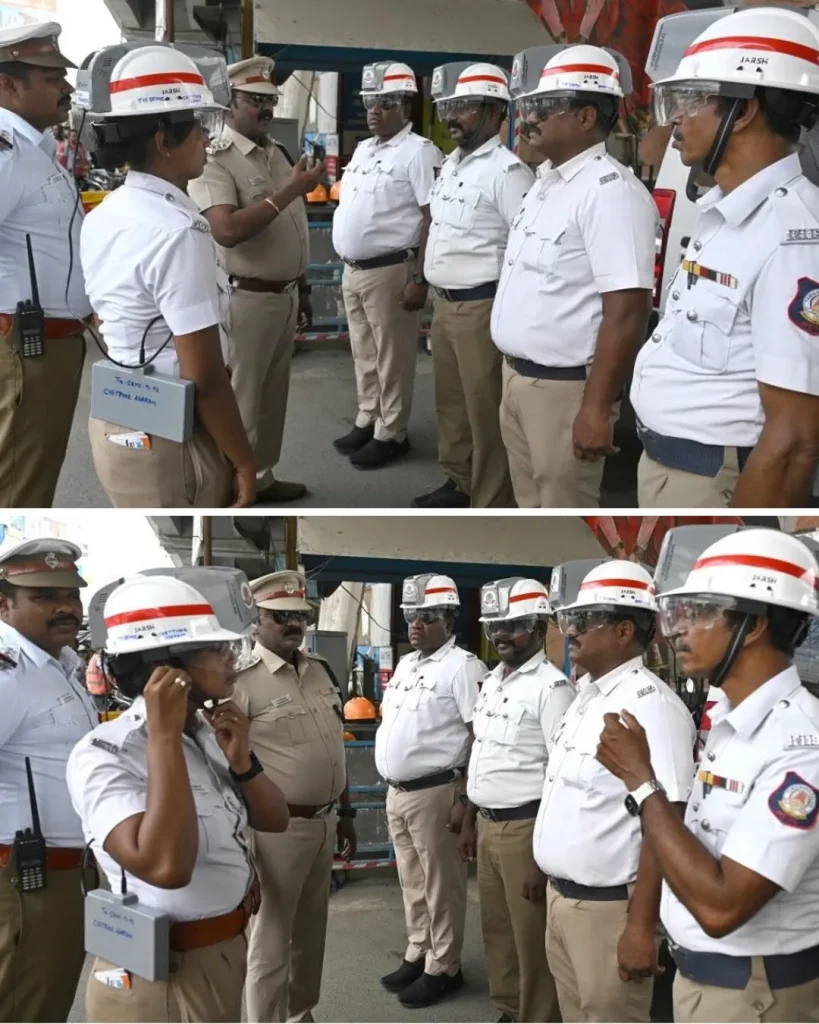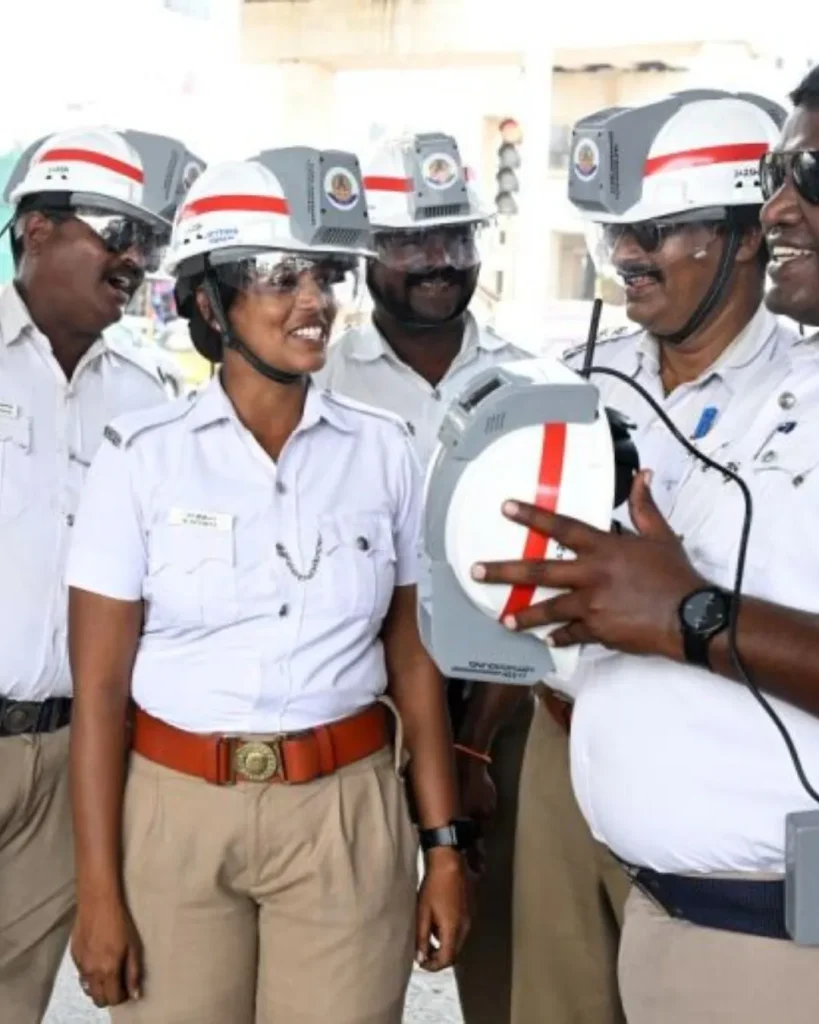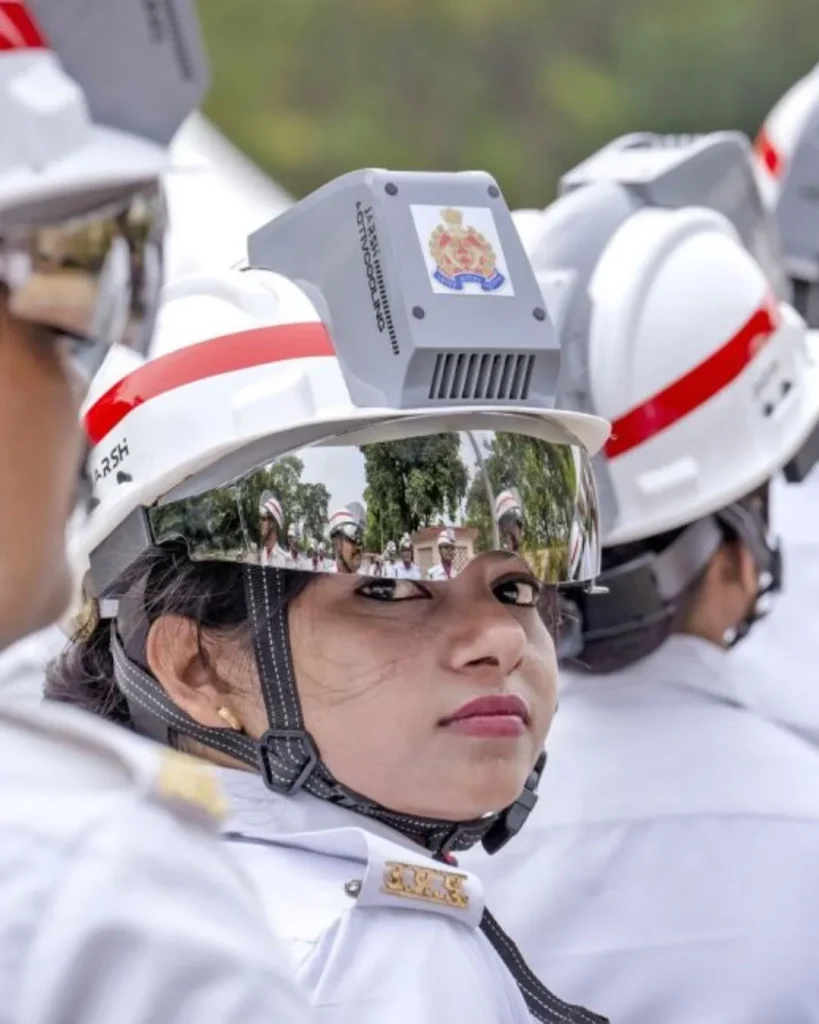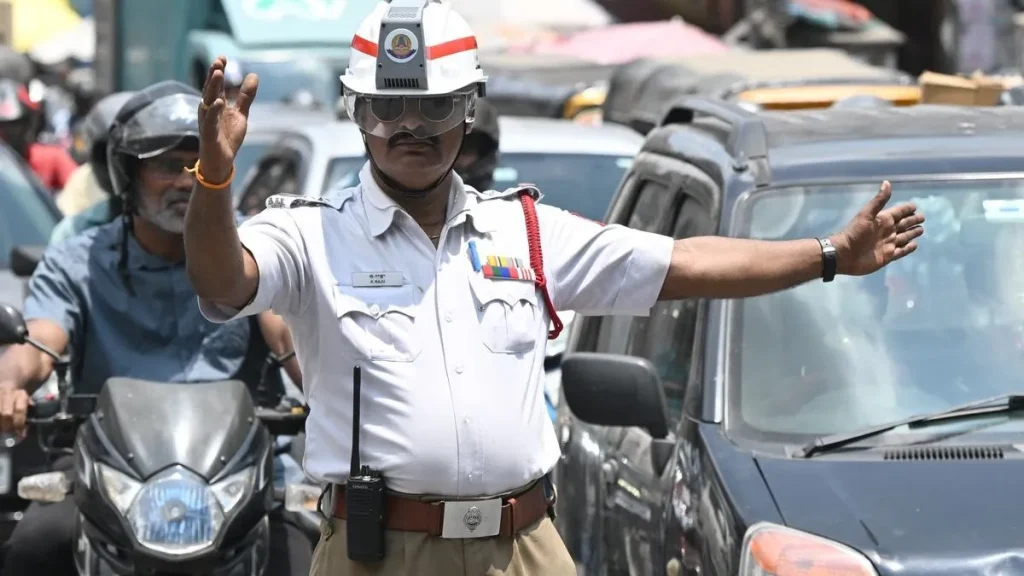In an effort to help traffic police cope with the intense summer heat, the Avadi City Police in Chennai have introduced air-conditioned helmets on a pilot basis. This initiative aims to improve the comfort and productivity of officers who spend long hours managing traffic under the scorching sun.

The helmets were funded by a private firm as part of its corporate social responsibility (CSR) program. Each helmet costs ₹20,000 and is manufactured by a company in Telangana. The helmets are equipped with a small air-conditioning unit in the front, powered by a rechargeable lithium-ion battery with a standby time of about eight hours. They are also relatively lightweight, weighing around 850 grams, making them easier to wear for extended periods.

According to Avadi City Police Commissioner K. Shankar, the extreme summer heat has a direct impact on both the physical and mental well-being of traffic police personnel, affecting their performance. “We hope these air-conditioned helmets will provide some relief for our traffic personnel this summer,” he stated.
The cooling system in the helmet is designed to offer portable ventilation in environments where temperatures range between 40°C and 60°C. Additionally, the helmet is not limited to cooling; it also has a heating function if required in different weather conditions.

As part of the initial rollout, 50 out of the 334 traffic police personnel in the Avadi City Police force have received these helmets. Officers who have used them reported that while the cooling system does provide relief, there is a slight vibration when the air-conditioning is turned on. The police department is currently analyzing feedback from officers before making a decision on expanding the program.

Spending long hours outside in extreme heat puts traffic officers at risk of dehydration, sunstroke, and respiratory issues, especially due to high levels of dust and pollution. Over the years, the Chennai police have implemented several measures to help officers manage the summer heat, including providing free buttermilk, distributing sunglasses, supplying pith helmets for sun protection, and setting up shaded rest areas at traffic signals.
Based on the results of this pilot project, the department will consider procuring more helmets to benefit a larger number of traffic personnel.
